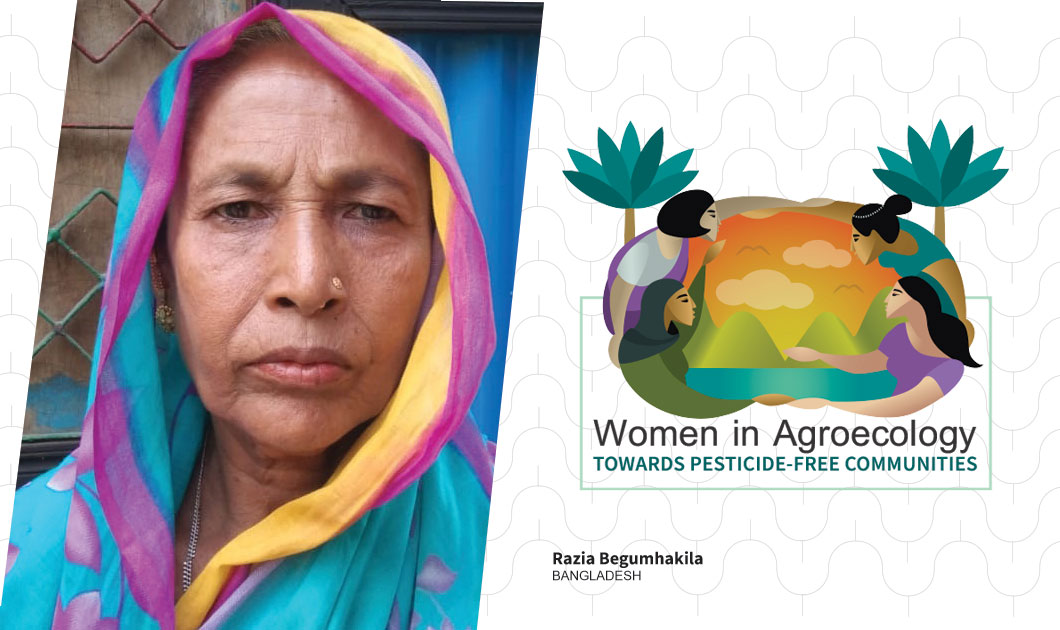“By using biopesticides instead of chemical pesticides, my family has received many benefits. Now we don’t need to buy pesticides, and there are no diseases in the family. The vegetables taste better than before. In the past, my grandson did not like to eat papaya but now he eats papaya a lot since I stopped using chemical pesticides.”
This was the testimony of Razia Begum, 60, from Bashra Village, Eliotganj in Comilla District, Bangladesh. Razia said that her grandson also used to have a skin disease from when they used chemical sprays. “But now everyone is healthy and free from disease.”
Razia is a member of SHISUK women’s community enterprise Ananna. She has stopped using chemical pesticides for a year. Now she only uses biopesticides in her family’s agricultural land of less than a hectare, where she grows vegetables such as papaya, tomato, pepper, gourd and brinjal. Razia also owns a cow farm where she gets her main income.
Aside from the health benefits, Razia also receives a handsome income from selling biopesticides at a local store for 30 BDT per kilo (100 BD = 1 USD). “The demand for biopesticides is increasing. Because many people are still unaware of the benefits of biopesticides, it is still taking some time to sell them in large quantities. But as SHISUK continues to spread knowledge on its benefits, the demand goes up too. Also, the price of biopesticides is a lot cheaper than chemical pesticides so many people are now choosing it.”
Razia said that she did not get support from the government. But she received trainings from the local organisation SHISUK (Shikkha Shastha Unnayan Karzakram). “They also supported me in building a concrete ring house for making vermicompost. Because of this, I am now able to contribute financially, and everyone in my family appreciates me and listens to my opinion.”
It is very easy to make biopesticides, she said. “All you need is one kilogram of Bishkatali (herb), neem leaves, 20 mahogany seeds, 10 kilos of cow’s urine, and a small amount of water in a clay pot. Just mix them all together in the pot and bury in soil for 40 days and then the solution is ready to use.”
Razia added that she also learned that chemical pesticides destroy biodiversity. “Many people are still not aware of the importance of preserving the biodiversity. I think biodiversity needs to be protected. If biodiversity is not preserved, the environment will not be in a good state. If birds and other organisms are destroyed, then pests would increase, resulting in low yields.” ###
Women In Agroecology: Towards Pesticide-Free Communities is a continuing storytelling initiative of PAN Asia Pacific and its partners to document stories of rural women who are survivors of pesticide poisoning and/or making the transition to agroecology.
Our contributing partners: Shikkha Shastha Unnayan Karzakram (SHISUK), Bangladesh; Society for Rural Education, India; Gita Pertiwi, Indonesia; Thanal Trust, India; PAN India; and Sustainable Agriculture and Environment Development Association (SAEDA), Laos








Discussion about this post